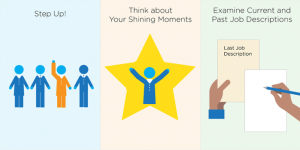The key to a great job interview is preparation.
As somebody who has interviewed thousands of candidates I can tell you that it is very sad to meet a candidate who is smart and friendly — but also, sadly unprepared for the interview.
When you ask a candidate, “What do you know about our company so far?” and their answer is, “Not too much, to be honest — just what’s in the job ad!” it’s a sad moment.
How can the candidate recover from that unfortunate start? They’ve already sent the message that they don’t care very much about the opportunity.
If the job is the kind of entry-level job people often take at the very start of their career, that’s one thing. A teenager doesn’t need to know the intricacies of Target’s corporate structure in order to do a great job as a Target cart attendant.
It’s different when you’re interviewing for a so-called Staff Professional role or any Knowledge Worker job. You have to do your research before the interview.
Your research not only equips you with information that will help you create the connection you want to make at the job interview (if it turns out that you like and respect the people you meet, and the job sounds interesting to you), although that is one benefit.
The other important reason to do your research before a job interview is to help you compose questions about the job.
There are certain things the employer needs to know about before they will hire you. There are certain things you need to know about the role and your prospective next boss, too — before you’ll know whether or not you want the job.
You should plan on at least two hours of preparation time before an interview.
If that sounds like a lot, think about how many brain and heart cells you will invest in the job if you take it!
You need to know as much as possible about the people you’re thinking about working with — before the interview begins.









